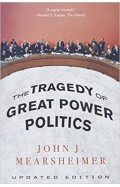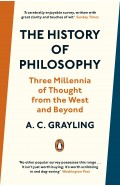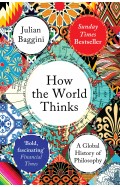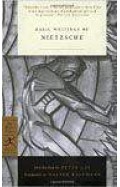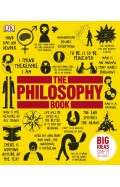The Idea of Justice
By: Amartya Sen
-
Rs 2,965.50
- Rs 3,295.00
- 10%
You save Rs 329.50.
Due to constant currency fluctuation, prices are subject to change with or without notice.
Is justice an ideal, for ever beyond our grasp, or something that may actually guide our practical decisions and enhance our lives?
At the heart of Sen's argument is his insistence on the role of public reason in establishing what can make societies less unjust. But there are always choices to be made between alternative assessments of what is reasonable, and competing positions can each be well defended. Rather than rejecting these pluralities, we should use them to construct a theory of justice that can accommodate divergent points of view. Sen also inspiringly shows how the principles of justice in the modern world must avoid parochialism and address vital questions of global injustice.
The breadth of vision, intellectual acuity and striking humanity of one of the world's leading public intellectuals have never been more clearly shown than in this remarkable book.
'A major advance in contemporary thinking'
John Gray, Literary Review
'The most important contribution to the subject since John Rawls's A Theory of Justice'
Hilary Putnam, Harvard University
'Sen writes with dry wit, a feel for history and a relaxed cosmopolitanism ... a conviction that economists and philosophers are in business to improve the world burns on almost every page'
Economist
'Sen's magisterial critique of the dominant mode of liberal political philosophy confirms him as the English-speaking world's pre-eminent public intellectual'
New Statesman Books of the Decade
Amartya Sen is Lamont University Professor at Harvard. He won the Nobel Prize in Economics in 1998 and was Master of Trinity College, Cambridge 1998-2004. His most recent books are The Argumentative Indian, Identity and Violence and Development as Freedom. His books have been translated into thirty languages.
Is justice an ideal, for ever beyond our grasp, or something that may actually guide our practical decisions and enhance our lives?
At the heart of Sen's argument is his insistence on the role of public reason in establishing what can make societies less unjust. But there are always choices to be made between alternative assessments of what is reasonable, and competing positions can each be well defended. Rather than rejecting these pluralities, we should use them to construct a theory of justice that can accommodate divergent points of view. Sen also inspiringly shows how the principles of justice in the modern world must avoid parochialism and address vital questions of global injustice.
The breadth of vision, intellectual acuity and striking humanity of one of the world's leading public intellectuals have never been more clearly shown than in this remarkable book.
'A major advance in contemporary thinking'
John Gray, Literary Review
'The most important contribution to the subject since John Rawls's A Theory of Justice'
Hilary Putnam, Harvard University
'Sen writes with dry wit, a feel for history and a relaxed cosmopolitanism ... a conviction that economists and philosophers are in business to improve the world burns on almost every page'
Economist
'Sen's magisterial critique of the dominant mode of liberal political philosophy confirms him as the English-speaking world's pre-eminent public intellectual'
New Statesman Books of the Decade
Amartya Sen is Lamont University Professor at Harvard. He won the Nobel Prize in Economics in 1998 and was Master of Trinity College, Cambridge 1998-2004. His most recent books are The Argumentative Indian, Identity and Violence and Development as Freedom. His books have been translated into thirty languages.
Zubin Mehta: A Musical Journey (An Authorized Biography)
By: VOID - Bakhtiar K. Dadabhoy
Rs 892.50 Rs 1,050.00 Ex Tax :Rs 892.50
A Short History of Europe: From Pericles to Putin
By: Simon Jenkins
Rs 2,965.50 Rs 3,295.00 Ex Tax :Rs 2,965.50
The Tragedy of Great Power Politics
By: John J. Mearsheimer
Rs 7,105.50 Rs 7,895.00 Ex Tax :Rs 7,105.50
Our Oldest Enemy: A History of America's Disastrous Relationship With France Hardcover
By: John J. Mearsheimer
Rs 810.00 Rs 900.00 Ex Tax :Rs 810.00
The Israel Lobby And Us Foreign Policy
By: John J. Mearsheimer
Rs 2,965.50 Rs 3,295.00 Ex Tax :Rs 2,965.50
How the World Thinks: A Global History of Philosophy
By: Julian Baggini
Rs 2,965.50 Rs 3,295.00 Ex Tax :Rs 2,965.50
The Quest For Meaning: Developing A Philosophy Of Pluralism
By: Tariq Ramadan
Rs 1,185.75 Rs 1,395.00 Ex Tax :Rs 1,185.75
The Basic Writings of Nietzsche
By: Peter Gay/Sigmund Freud
Rs 3,865.50 Rs 4,295.00 Ex Tax :Rs 3,865.50
A Short History of Europe: From Pericles to Putin
By: Simon Jenkins
Rs 2,965.50 Rs 3,295.00 Ex Tax :Rs 2,965.50
The Tragedy of Great Power Politics
By: John J. Mearsheimer
Rs 7,105.50 Rs 7,895.00 Ex Tax :Rs 7,105.50
Our Oldest Enemy: A History of America's Disastrous Relationship With France Hardcover
By: John J. Mearsheimer
Rs 810.00 Rs 900.00 Ex Tax :Rs 810.00
The Israel Lobby And Us Foreign Policy
By: John J. Mearsheimer
Rs 2,965.50 Rs 3,295.00 Ex Tax :Rs 2,965.50
How the World Thinks: A Global History of Philosophy
By: Julian Baggini
Rs 2,965.50 Rs 3,295.00 Ex Tax :Rs 2,965.50
No recently viewed books available at the moment.
Zubin Mehta: A Musical Journey (An Authorized Biography)
By: VOID - Bakhtiar K. Dadabhoy
Rs 892.50 Rs 1,050.00 Ex Tax :Rs 892.50
A Short History of Europe: From Pericles to Putin
By: Simon Jenkins
Rs 2,965.50 Rs 3,295.00 Ex Tax :Rs 2,965.50
The Tragedy of Great Power Politics
By: John J. Mearsheimer
Rs 7,105.50 Rs 7,895.00 Ex Tax :Rs 7,105.50
Our Oldest Enemy: A History of America's Disastrous Relationship With France Hardcover
By: John J. Mearsheimer
Rs 810.00 Rs 900.00 Ex Tax :Rs 810.00
The Israel Lobby And Us Foreign Policy
By: John J. Mearsheimer
Rs 2,965.50 Rs 3,295.00 Ex Tax :Rs 2,965.50
How the World Thinks: A Global History of Philosophy
By: Julian Baggini
Rs 2,965.50 Rs 3,295.00 Ex Tax :Rs 2,965.50












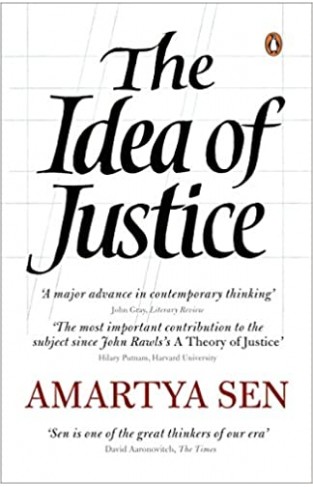
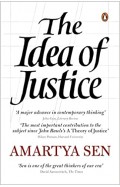

-120x187.jpg?q6)






